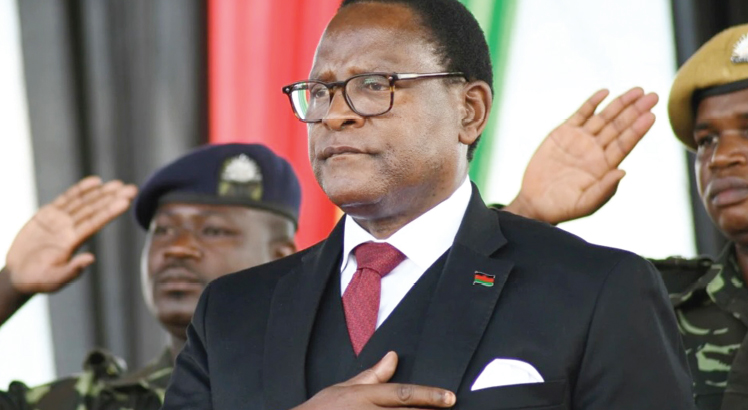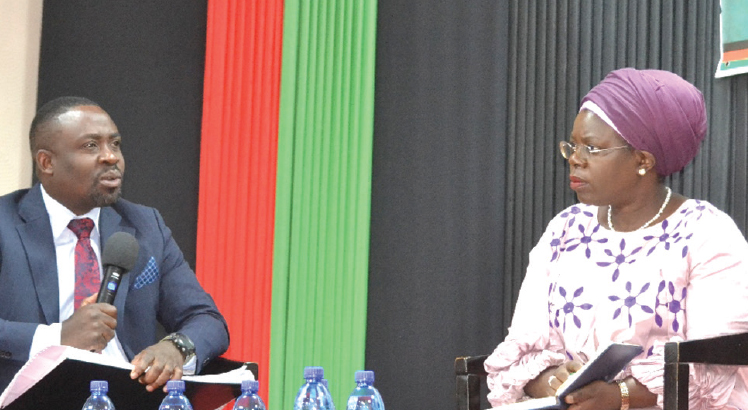President Lazarus Chakwera says there is need for a new anti-corruption approach that demands relevant institutions and duty bearers to work together to sustain the fight against the vice.
In his speech delivered at the start of a two-day National Anti-Corruption Conference in Blantyre yesterday, the President said such an approach should encompass dealing with corruption holistically rather than cherry-picking one aspect.
He said: “We need a new approach that demands that Parliament plays its role by addressing the inconsistencies and gaps in our entire law, not simply cherry-pick one clause about prosecutorial consent found in one law as if doing so will address the mistrust that hinders public institutions from working together to close all the gaps criminals use to defraud the government.”
Chakwera: There is need for new approach
The President’s sentiments come at a time when there have been mixed opinions on Parliament’s move to pass a motion to facilitate amendment of the law to allow the Anti-Corruption Bureau (ACB) to prosecute cases without seeking consent from the Director of Public Prosecutions (DPP).
Moved by Legal Affairs Committee of Parliament vice-chairperson Ashems Songwe, who is also Likoma member of Parliament (MP) affiliated to Malawi Congress Party (MCP), the motion stresses the need to amend the Corrupt Practices Act (CPA) to do away with DPP’s consent purportedly because the arrangement undermines the independence of the bureau.
The motion received resounding approval from legislators across the political divide in the House as most of them held the view that the proposed amendment would improve the fight against graft.
But Minister of Justice Titus Mvalo told Parliament that the passing of the motion and the subsequent Private Member’s Bill to amend the CPA were of no consequence as the DPP is constitutionally the ultimate authority on matters of public prosecution.
The motion proposes amendments to remove Section 10 (1) of the CPA which requires the bureau to obtain consent from the DPP to prosecute offences. It also targets Section 42 of Powers of the DPP, which grants the DPP overriding authority to either takeover, withdraw or discontinue any ongoing prosecution under the director of ACB.
Apart from the support the motion received from legislators, the Malawi Law Society (MLS) has also been in support of the amendment.
But in his speech yesterday, Chakwera said Parliament must look at the country’s laws comprehensively, citing laws that regulate political party financing, public procurement, financial transactions between private and public sectors, and governance agencies such as the ACB, DPP, Fiscal Police and Financial Intelligence Authority (FIA).
Chakwera said Parliament must look at such laws comprehensively not only to protect governance bodies’ independence, but to also shield them from undue influence from non-State actors such as political parties, private businesses and agents of foreign governments.
The President further said if Parliament is serious about the independence of such governance bodies, it must go all the way to ensuring that no entity, whether domestic or foreign, is able to influence how and when laws are enforced in Malawi.
“Not long ago, a diplomat from a Western country told me that I should expect to see arrests of corruption suspects from the previous administration and I told him that I don’t know anything about it because I don’t interfere with the operations of the authorities responsible for those matters.
“But I was shocked that a foreign diplomat had access to that kind of information and influence over our law enforcement,” said Chakwera.
He said while Parliament needs to play its oversight role, the National Anti-Corruption Conference is important in the context of defining the role of each and every stakeholder in the fight against graft.
Chakwera also announced that he has directed Secretary to the President and Cabinet Colleen Zamba to initiate the process of reactivating Malawi’s membership with the Open Government Partnership aimed at raising the level of accountability across the continent.
In his speech, Mvalo said while corruption is an evil that stands in the way of Malawi’s development, prosecution on the other hand has not been a deterrent to the vice.
He said: “Corruption reduces the capacity for the government to provide services, it diverts money to few selfish individuals. Though many people say it is a cancer that spreads quickly, it is more than that.”
Mvalo said there are a number of initiatives being implemented, citing the establishment of a financial crimes court. He said the Court Amendment Bill of 2020 that will facilitate the establishment of the court will be tabled in the current sitting of Parliament.
The two-day National Anti-Corruption Conference ends today and Chakwera is expected to launch an anti-corruption campaign after the meeting.
The post LMC for unity In graft fight appeared first on The Nation Online.
 Moni Malawi
Moni Malawi 

